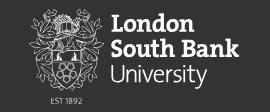About Master Of Business Administration (international Management) MBA in London South Bank University (LSBU)
The MBA (IM) is aimed at ambitious, knowledge hungry students from a wide range of entrepreneurial, business and public sector backgrounds looking to develop their careers, whether as entrepreneurs or business managers and leaders The development of a global network will be a key part of the experience.
7 reasons to take your MBA here
- Flexible delivery modes: The programme is designed around flexible modes of delivery, with minimum interruption to work patterns: Full time – weekly delivery, completed within 12 months OR
- Part Time – weekly delivery, completed within 24 months
- Taught by experienced academics and practitioners: with national and international reputations, who contribute to public policy debate and publish original research.
- Two residential weekends: intensive learning, life coaching, networking and skills development weekends - where you can learn from (and with) your fellow MBA participants.
- Live case-study learning: consolidate and apply your learning to real business situations and propose clear, evidence-based solutions to contemporary business problems.
- Personal growth: develop transferable skills in leadership, communication, teamwork, innovation, creativity, resilience, dealing with ambiguity, persuasive advocacy, problem solving and critical thinking.
- CMI professional accreditation: under negotiation.
- Consultancy practice and start-up advice: you'll be able to gain hands-on consultancy experience through the Business Solutions Centre, offering advice to SMEs, as well as accessing business start-up advice for your own entrepreneurial ventures.
An MBA (International Management) develops...
-
- An understanding of the latest developments in managerial theories and practice in order to develop analytical judgement and critical awareness.
- An in depth knowledge of the principles of strategic thinking in an international business context by building upon the practical experience of the course participants.
- The course member’s diverse personal experiences as vehicles for learning, including peer group learning and for personal development of a range of managerial abilities, including team working and effective management skills.
- Skills for change, decision making, adaptation, enterprise and sustainability in a dynamic and complex international business environment. To combine knowledge with a student-centred learning process to develop skills, attitudes and abilities relevant to the student’s future employment. In particular it is designed to equip students with the ability to manage change, both in their individual career and at organisational level.
- Cultural intelligence in an increasingly multicultural globalised business environment
- The capacity for professional development and competencies in relation to management across knowledge and understanding, cognitive skills and behavioural/professional skills.
- Knowledge of a variety of business analysis techniques, including the ability to select and use critically appropriate analytical tools in different business situations.
- A critical understanding of the factors determining organisational performance in an international environment.
- Honours Degree from a prestigious Indian university: 53-55% or higher
- Honours Degree from a recognised Indian university: 55% or higher
- Honours Degree from a recognised international university: equivalent to UK Bachelor Degree Second Class Honours or higher
- All applicants will be interviewed prior to acceptance on to the programme. The aim of the interview process is to ensure that students will have a positive impact on the learning experience of those on the journey with them.
- Key to our provision is group work; peer to peer learning and application of learning to live projects preferably drawn from the student’s work place and/or experience. Therefore, it is imperative that students can contribute to this process with enthusiasm and in a collegiate manner.
- Interviews will be carried out by the Course Director and can be face to face or via Skype.
- If you do not fulfil the entry requirements to join the MBA, you may wish to consider one of our alternative Masters programmes in International Business Management.
London South Bank University (LSBU) Highlights
| University Type |
Public University |
| Campus Setting |
Urban |
| Establishment Year |
1992 |
| No. of Schools |
7 |
| No. of Campuses |
2 |
| No. of Residences |
4 |
| Graduate Job Rate |
89% |
| Student-Teacher Ratio |
17:1 |
| External Income |
£2 million |
| Cost of Attendance |
£14,780 |
| Applications Accepted |
Online |
| Work-Study |
Not available |
| Intake Months |
January and September |
| Mode of Program |
Classroom and online |
London South Bank University Average Tuition Fees And Other Expenses
| Course |
Tuition Fee |
| Undergraduate |
£13,780 |
| MSc; MA; PG Diploma |
£13,780 |
| MBA |
£15,100 |
| MPhil; PhD |
£13,780 |
The weekly cost of living for students living in hostel accommodation and private accommodation is, respectively, £206–356 and £225–515.
London South Bank University Admission Process
- Application: The international students may apply by filling the LSBU application form. In absence of the preferred course in the list, UG and PG students may apply, respectively, via ‘UCAS’ and ‘UKPASS’.
- Application deadline:
UG Courses: January 15 (UCAS); June 30 (UCAS Extra)
PG Courses: There is no fixed closing date for PG courses.
- General requirements: Academic transcripts, official degree completion certificate, English language certificate.
- Additional requirements: Passport copy, current visa, 2 academic references with official stamp, research proposal (PG research students), CV.
- English Proficiency Test: The students need to demonstrate English language proficiency through the tests given below.
| Test |
UG |
PG |
| IELTS |
6.0 |
6.5 |
| PTE Academic |
52 |
60 |
| GCSE/O-Level/IGCSE |
Grade C |
Grade C |
| Cambridge English: Advanced |
Grade C |
Grade C |
